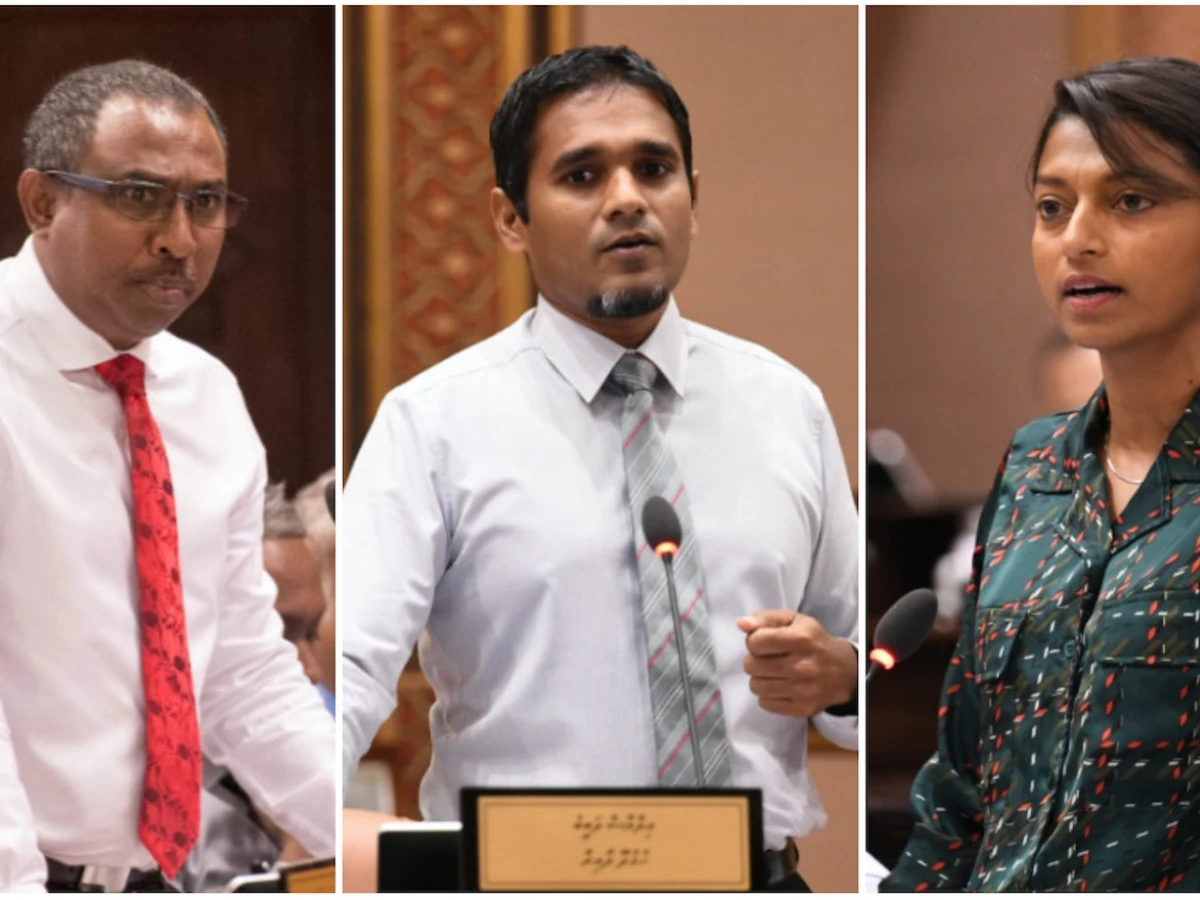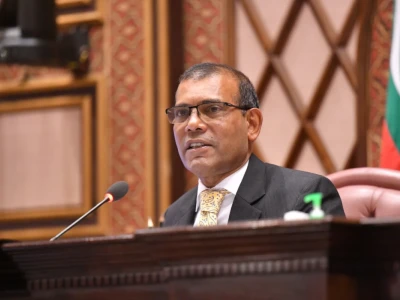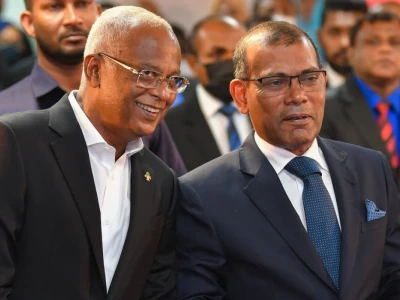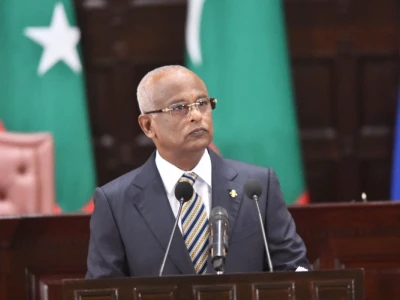
Pro-Nasheed MPs oppose Maldives government's tax hike proposal
The amount of money that is being spent on running the government is equivalent to what is spent on running state-owned companies.
Top Stories
By
Mariyam Umna Ismail
Parliamentarians from ruling MDP that support Speaker Monahmed Nasheed on Tuesday voiced opposition to the government's proposal to increase taxes in a bid to increase government revenue amid the ongoing global economic recession.
Nasheed who also serves as MDP president had previously spoken in favour of the proposed tax hikes. The former president had said that the tax increases were needed to pay off state debt and sustain expenditure.
The government has proposed amendments to the Goods and Services Tax Act to increase taxes from January:
-
Increase goods and services tax or GST from 6% to 8%
-
GST on the tourism sector or T-GST to be increased from 12% to 16%
Relations between President Ibrahim Mohamed Solih and Nasheed have been strained lately and as a result, two factions have been formed among the party's general members and parliamentary group members. Verbal attacks have been heard on repeated occasions among parliamentarians in debates, and MPs who support Nasheed sometimes vote against the party's whip lines.
Tax experts advise to not meddle with taxes at a time when there are thousands of people living in difficult times, when tensions are high. Then what can be done instead?
Ensuing the debate on the motion submitted by Ihavandhoo MP Mohamed Shifau, deputy speaker Eva Abdulla said that Maldives is forced to find ways to increase income as the Russia-Ukraine war affects the global economy.
Eva said that when the tax systems of countries were changed to overcome the economic impact of Covid-19, additional taxes were levied only on those who were self-sufficient and earned more than average. She raised the question whether it was the best way to increase the tax levied on the public in such times to sustain state expenditure without seeking other ways to increase income.
"The question arises now, Honourable Speaker, whether this is the avenue that demands highest priority to increase the government's income. The price of commodities has increased. The price of oil has increased. Inflation has never been so high in the world. Is this really the time to levy tax increments on the public?," Eva said.
Central Henveiru MP Ali Azim also asked similar questions.
Government actions in conflict; companies 'out of control'
Azim also said that ways must be found other than increasing taxes to increase state revenue. He said that the government is squandering a lot of money at a time of economic recession and that if it wants to increase income, it must stop spending money on impractical expenditure.
He noted the circular issued by the finance ministry in June instructing to reduce state expenditure in six sectors.
Azim said that even if the circular was issued to reduce expenditure, the government is acting in complete opposite of it:
-
Although some state-owned companies have been ordered to suspend their promotions, they are not doing so
-
Several government-funded ceremonies have been held since the circular was issued.
-
Political positions are still being created; it is necessary to look into how many such positions have been created
Hulhudhoo MP Ilyas Labeeb also spoke on the importance of reducing state expenditure. He said that he did not believe that state expenditure on state-owned companies was managed efficiently and that the wasteful expenses of these companies were "out of control".
Speaking about the government's wasteful expenditure, Ilyas noted:
-
The amount of money that is being spent on running the government is equivalent to what is spent on running state-owned companies
-
MVR 985 million was allocated beyond the set state budget for state-owned companies in 2019
-
State-owned companies depend on the government for their rent and salaries; there are many such companies that are not making any profit
-
The government is also forced to pay off loans taken by public companies when they are not able to.
The tax increase bill stipulates:
-
Measures are required to adapt to increasing state expenditure policies and changes in the global economy
-
To make recurrent state expenses meet with state income, increasing the GST from businesses and TGST from the tourism industry is important.
-
If these measures are not taken, recurrent expenditures will not be met by state income, according to fiscal strategy estimates
However, Ilyas said that this is not the best time to increase taxes. He said that other ways must be found to obtain the projected MVR 2.6 billion that could be gained from hiking taxes.
"Tax experts advise to not meddle with taxes at a time when there are thousands of people living in difficult times, when tensions are high. Then what can be done instead?," Ilyas said.




